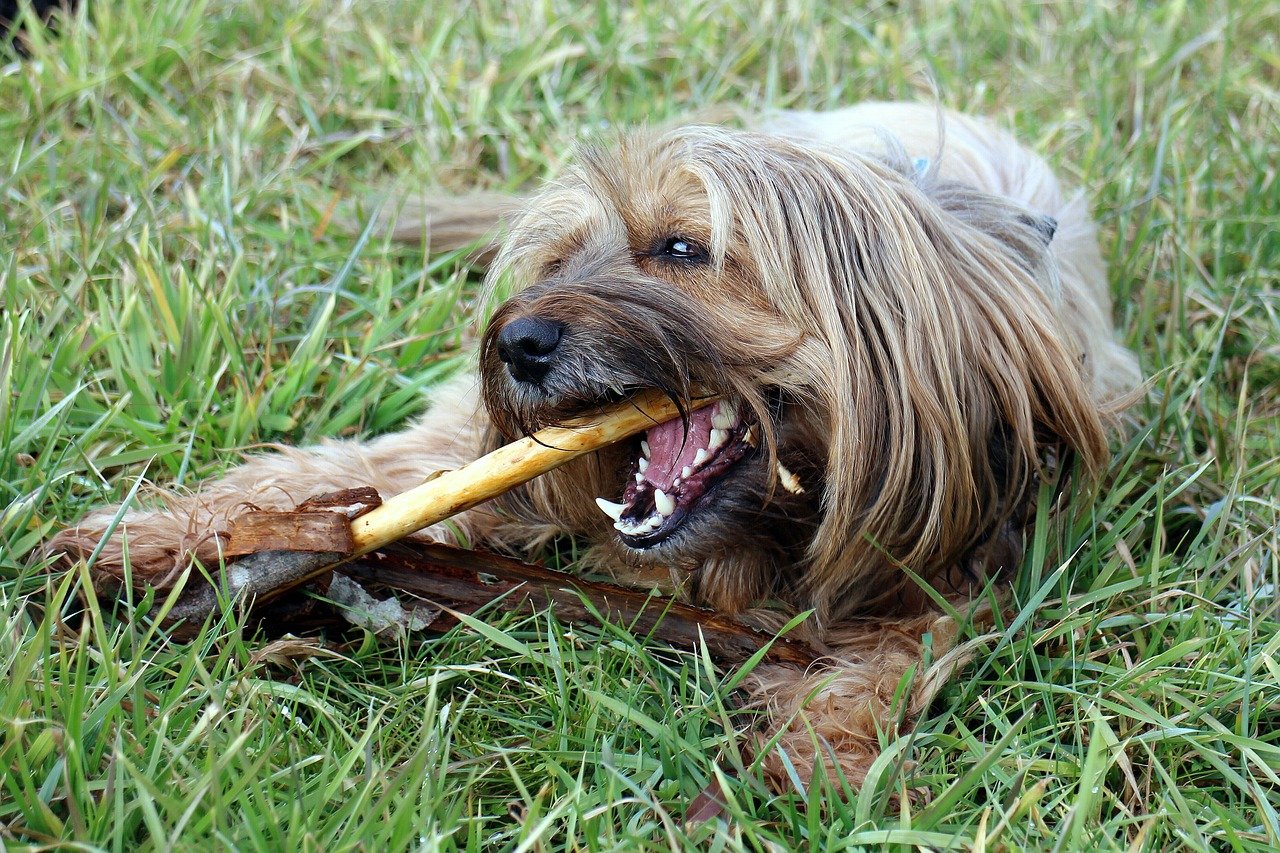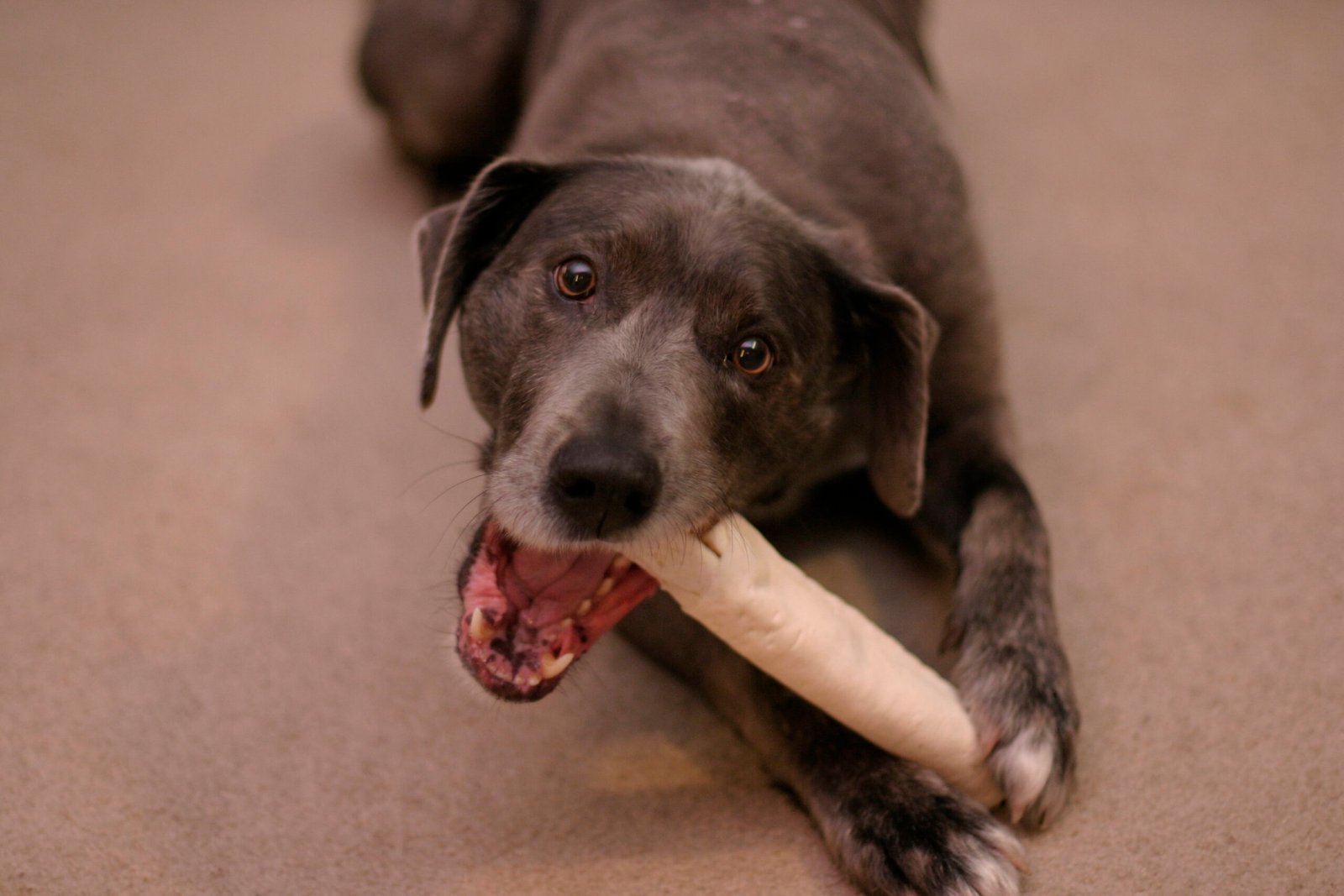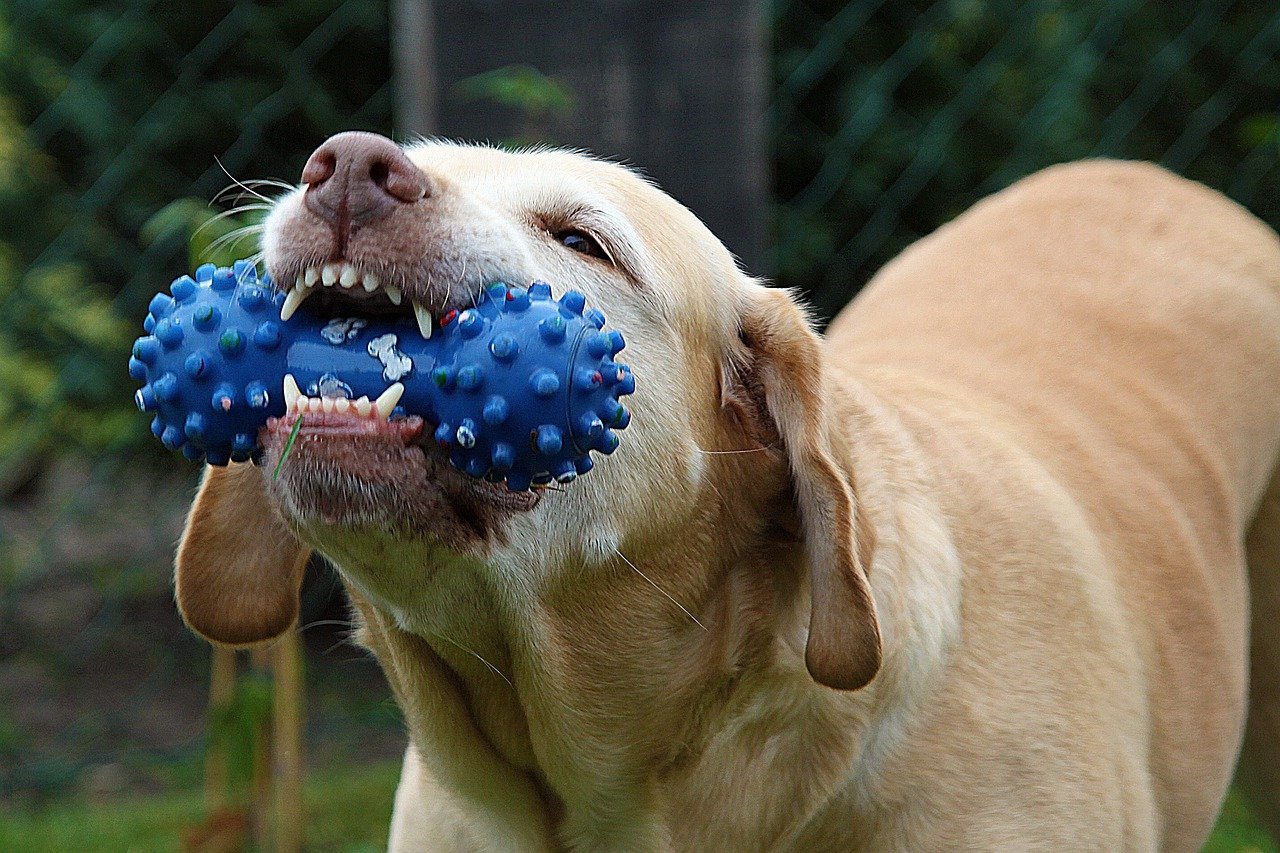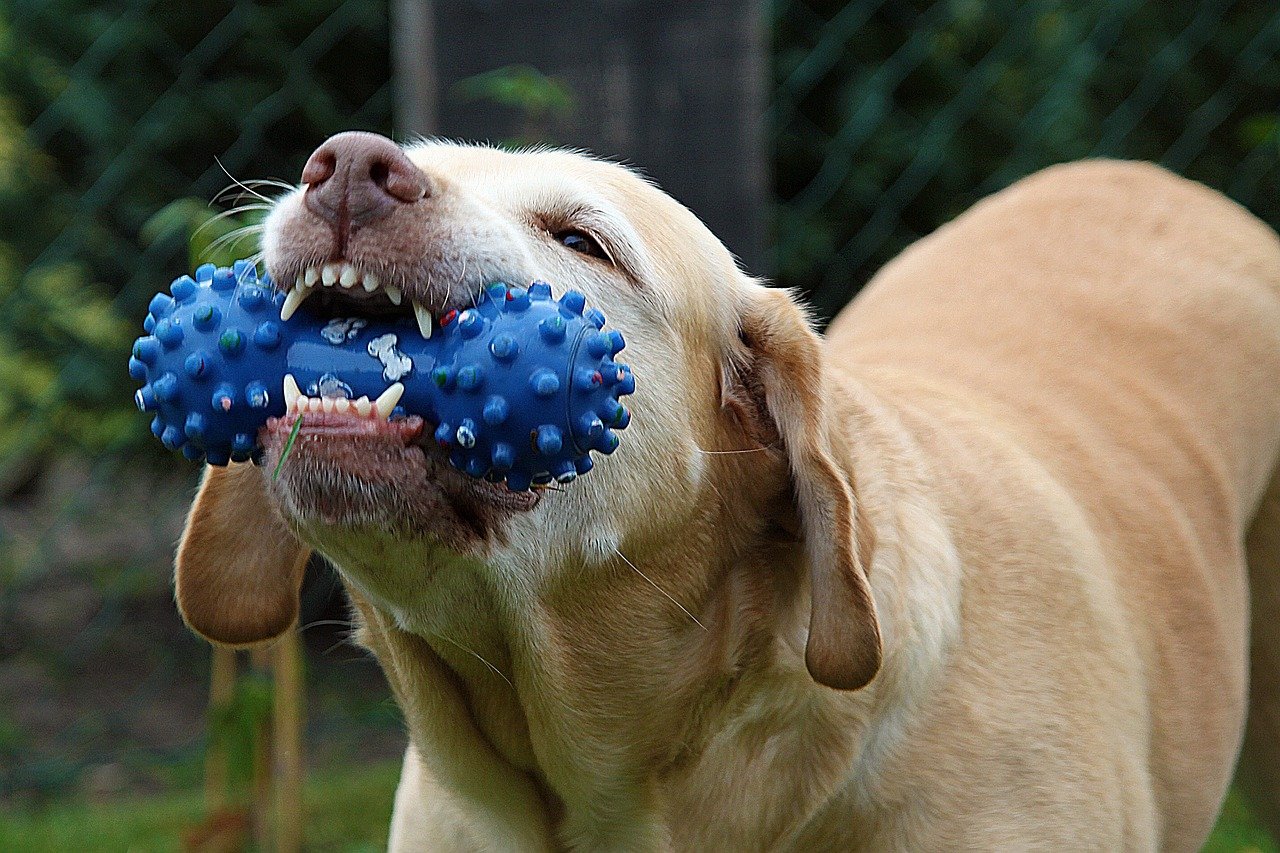Have you ever wondered why your furry friend seems to have an insatiable desire to chew on anything they can get their paws on? It turns out, this behavior isn’t just a quirky trait of your beloved pet. Chewing plays a vital role in a dog’s life, impacting their health, behavior, and happiness. In this article, we’ll explore ten fascinating reasons why dogs absolutely need to chew, backed by science. Whether you’re a seasoned dog owner or a new pet parent, understanding this natural canine behavior can deepen your bond with your four-legged friend. Let’s dive into the world of dogs and discover why a happy dog is a chewing dog!
Chewing Promotes Dental Health

One of the most significant benefits of chewing for dogs is its positive impact on dental health. Just like humans, dogs need to maintain their oral hygiene to prevent issues such as plaque build-up and gum disease. Chewing on appropriate items, like dental chews or specially designed toys, can help scrape away plaque and stimulate the gums. This natural cleaning process can reduce the risk of oral infections and keep your dog’s breath fresh.
Furthermore, strong teeth are essential for dogs to enjoy their meals and treats. Regular chewing can help strengthen their teeth, ensuring they can munch on their favorite snacks without discomfort. It’s a win-win situation: your dog stays entertained, and their dental health is cared for effortlessly. So next time your dog chews on their favorite toy, remember they’re doing more than just having fun—they’re taking care of their teeth!
Chewing Relieves Stress and Anxiety
Did you know that chewing can be a natural stress reliever for dogs? Much like humans who might turn to knitting or squeezing a stress ball, dogs find comfort in the repetitive action of chewing. This behavior can help calm their nerves, especially in stressful situations such as thunderstorms or when left alone at home.
Chewing releases endorphins, which are the body’s natural feel-good hormones. These chemicals can help your dog feel more relaxed and content. Providing your dog with safe chew toys can be an effective way to help them cope with anxiety. So, if you notice your dog turning to their chew toys during a stressful moment, they’re simply using a natural method to soothe themselves.
Chewing Encourages Mental Stimulation
Dogs are intelligent creatures that thrive on mental stimulation. Chewing is not just a physical activity; it also engages their minds. When a dog chews, they’re often figuring out how to manipulate their toy or treat to get the most satisfaction out of it. This process can be likened to a puzzle, keeping their brain active and sharp.
Mental stimulation is crucial for preventing boredom in dogs, which can lead to unwanted behaviors like excessive barking or furniture destruction. Providing a variety of chew toys can keep your dog entertained and mentally engaged. By offering different textures and shapes, you’re giving your furry friend a chance to explore and learn, making them happier and more well-rounded companions.
Chewing Satisfies Natural Instincts

Chewing is an instinctual behavior that dates back to a dog’s ancestors. In the wild, chewing was essential for survival, helping dogs break down bones and tough materials for nutrition. While domesticated dogs don’t need to hunt for their food, the instinct to chew remains ingrained in their DNA.
By allowing your dog to chew, you’re honoring this natural instinct and fulfilling a fundamental need. This behavior can provide them with a sense of accomplishment and satisfaction. It’s important to offer appropriate items for them to chew on, ensuring they can safely indulge in this instinctual activity without causing harm to themselves or your belongings.
Chewing Provides Exercise

Chewing may not seem like an intense workout, but it does provide a form of exercise for your dog. The physical act of chewing engages various muscles in their jaws and neck, helping to keep them strong and healthy. This is especially important for dogs that may not get enough physical activity due to age or mobility issues.
Additionally, chewing can help burn off excess energy, particularly in young or high-energy dogs. By channeling their energy into a productive activity, you’re helping to prevent hyperactive behavior and promoting a more relaxed demeanor. So, the next time your dog is vigorously chewing on their toy, know that they’re getting a mini workout too!
Chewing Enhances Bonding with Owners

Chewing can be a social activity that strengthens the bond between dogs and their owners. When you engage with your dog by playing tug-of-war or offering them a new chew toy, you’re participating in a shared experience. This interaction can enhance the connection you have with your pet, making them feel loved and valued.
Moreover, observing your dog’s chewing habits can provide insight into their preferences and personality. By understanding what types of toys or treats they enjoy, you can cater to their tastes and make them feel special. This thoughtful approach can deepen your relationship and ensure your dog feels understood and appreciated.
Chewing Prevents Destructive Behavior

Destructive behavior in dogs often stems from boredom or a lack of appropriate outlets for their energy. Chewing can be a constructive way for dogs to channel their energy and prevent them from turning to destructive habits like chewing on furniture or shoes. By providing a variety of chew toys, you’re giving your dog an acceptable way to satisfy their need to chew.
It’s important to recognize that dogs don’t chew out of malice; it’s simply a natural behavior. By offering them the right tools, you can guide their chewing habits in a positive direction. This not only protects your belongings but also ensures your dog remains happy and content.
Chewing Supports Healthy Digestion

Chewing plays a role in promoting healthy digestion for dogs. When dogs chew, they produce more saliva, which contains enzymes that aid in breaking down food. This process starts in the mouth and continues in the stomach, helping to ensure that their meals are properly digested.
Additionally, chewing can help dogs eat at a slower pace, reducing the risk of digestive issues like bloating or choking. By encouraging your dog to chew their food thoroughly, you’re supporting their overall digestive health. Providing chew toys or treats can be an effective way to promote this beneficial behavior.
Chewing Builds Confidence
For shy or timid dogs, chewing can be a confidence-building activity. Successfully manipulating a chew toy or treat can provide a sense of achievement and boost their self-esteem. This can be particularly beneficial for rescue dogs or those with a history of anxiety.
By offering your dog opportunities to chew, you’re helping them develop a positive self-image and encouraging them to explore their environment with more confidence. This newfound assurance can translate into other areas of their life, making them more comfortable in social situations and enhancing their overall well-being.
As you can see, the simple act of chewing holds immense benefits for dogs, impacting every aspect of their lives. From dental health to mental stimulation, chewing is an essential behavior that contributes to a dog’s happiness and well-being. By understanding and supporting this natural instinct, you’re not only ensuring your dog’s health but also strengthening the bond you share. So, the next time your dog picks up a toy to chew on, remember the many reasons why this activity is so vital. What other surprising benefits might you discover in your own dog’s chewing habits?






